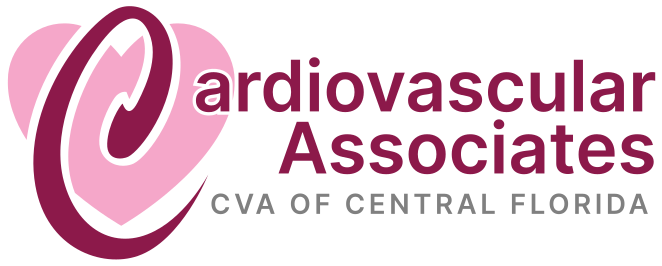Cardiac Ablation
What is the Cardiac Ablation Procedure?
Cardiac ablation is a minimally invasive procedure performed by specially trained electrophysiologists to treat arrhythmias. Arrhythmias are irregular heartbeats that can cause symptoms such as chest pain, shortness of breath, and fainting.
During cardiac ablation, a catheter is inserted through a vein in the leg and guided to the heart. The catheter has a small electrode at the tip that is used to deliver targeted energy, such as heat or radiofrequency energy, to the abnormal heart tissue that is causing the arrhythmia. The energy destroys the tissue, which stops the arrhythmia.
3D mapping techniques are used to pinpoint the arrhythmia triggers accurately. This ensures that the energy is delivered to the correct area of the heart, which helps to improve the success of the procedure. In some cases, multiple ablations may be necessary to achieve a successful outcome. However, in most cases, cardiac ablation is a safe and effective procedure that can provide long-term relief from arrhythmia symptoms.
Risks & Benefits of Cardiac Ablation
Cardiac ablation represents a remarkable advancement in the field of electrophysiology. While no medical intervention is entirely risk-free, cardiac ablation – a minimally invasive procedure – offers a compelling opportunity to improve heart health and enhance overall well-being for individuals experiencing heart rhythm disorders. Cardiac ablation can be used to treat a variety of different types of abnormal heart rhythms, including atrial flutter, atrial fibrillation, and other types of arrhythmias.
Benefits of Cardiac Ablation
- Restoring normal heart rhythm
Cardiac ablation works by isolating and short circuiting abnormal heart rhythms, preventing them from recurring and enabling restoration of normal heart rhythm. In doing so, this procedure can improve overall cardiac function and lead to a significant reduction in symptoms, such as palpitations, dizziness, and fatigue. - Reduced dependence on medication
For many patients, cardiac ablation can reduce the need for long-term medication use to manage arrhythmias. This can improve overall quality of life and eliminate potential side effects associated with certain medications. - Improved exercise tolerance
Restoring the heart's normal rhythm can enhance exercise tolerance and physical performance, promoting a more active lifestyle and better cardiovascular health. - Reduced risk of complications
Treating arrhythmias through cardiac ablation can lower the risk of potential complications associated with untreated heart rhythm disorders. Addressing these issues early can prevent more serious conditions, such as heart failure and stroke.
Risks of Cardiac Ablation
- Bleeding and bruising
Cardiac ablation involves catheter insertion, which may cause bleeding and bruising at the site of entry. However, this is generally minor and resolves without complications. - Infection
Although rare, as with any surgical procedure, there is a slight risk of infection. Strict infection control measures are meticulously observed to minimize this risk. - Blood clots
The procedure may temporarily increase the risk of blood clot formation, but medications are often prescribed to prevent this complication. - Damage to surrounding structures
In rare cases, cardiac ablation may cause damage to surrounding heart structures, leading to complications such as heart perforation. However, skilled and experienced electrophysiologists significantly reduce this risk. - Recurrence of arrhythmias
Although successful in most cases, some arrhythmias may recur after ablation. Additional treatments or procedures might be necessary to achieve optimal outcomes. - Anesthetic risks
As with any procedure requiring anesthesia, there is a small risk of adverse reactions or complications.
What to Expect Before, During, and After Cardiac Ablation
Before cardiac ablation, you will have a consultation with an electrophysiologist. They will review your medical history and conduct pre-procedure tests to assess your heart condition. Medication adjustments may be made, and you will be advised to fast before the procedure.
During the procedure, you will be given sedation, and a catheter will be inserted into your blood vessels to access the heart. The electrophysiologist will use mapping techniques to identify and ablate the abnormal heart tissue causing arrhythmias. Cardiac ablation takes about six to eight hours to complete. After the procedure, you will be observed for a brief period, and pain management will be provided if necessary. Depending on your condition, you may be discharged on the same day or stay in the hospital for a short period. Recovery involves gradually returning to your regular activities, and you will have long-term monitoring and follow-up appointments to ensure optimal heart health. Here are a few other things to keep in mind post-procedure:
- You may experience some bleeding or bruising at the insertion site. This is normal and should go away on its own within a few days.
- You may also experience some pain or discomfort in the area where the catheter was inserted. This can be managed with pain medication.
- You may feel tired or fatigued for a few days after the procedure. This is normal and should improve with rest.
- You may experience premature heartbeats, or even experience recurrences of your abnormal heart rhythm early on after the procedure. This is common and should improve on its own within a few weeks.
Am I a Candidate for Cardiac Ablation?
If you have an ongoing heart rhythm disorder and are experiencing associated symptoms or are having difficulty controlling this rhythm with medications, cardiac ablation may be a good option for you. To assess your eligibility for the procedure, your electrophysiologist will conduct a comprehensive analysis of your health profile and arrhythmia characteristics. Other factors will also be assessed, including:
- Type of arrhythmia
The specific type of arrhythmia you have will influence whether cardiac ablation is a suitable option. Some arrhythmias respond well to ablation, while others may require different treatments. - Severity of symptoms
If you experience severe symptoms related to your arrhythmia, such as palpitations, dizziness, or fainting spells, and they are not adequately controlled with medications or other therapies, cardiac ablation may be a viable treatment option. - Overall health
Your overall health and medical history will be evaluated to determine if you can undergo the procedure safely. If you have other medical conditions like heart failure or lung disease, these conditions may impact the decision for cardiac ablation. - Age
While cardiac ablation is generally safe for people of all ages, its effectiveness may vary in some patients, including in older adults. Your age will be taken into account when assessing the suitability of the procedure for you. - Response to medications
If your arrhythmia is not well-controlled with medications or you experience side effects from the drugs, cardiac ablation might be a beneficial alternative. - Failed other treatments
If you have tried other treatments for your arrhythmia without success, cardiac ablation may offer a more definitive solution.
Get Your Rhythm Back with Cardiac Ablation
If you have bothersome symptoms like palpitations, dizziness, or shortness of breath due to a heart rhythm disorder, take action today. Cardiac ablation may be able to restore your regular rhythm and provide lasting relief. Ablation offers a minimally invasive, potentially curative solution.
Don't settle for a life ruled by disruptive arrhythmia symptoms or risky medications. Request an appointment with our electrophysiology team to determine if ablation is right for you.
Photo Gallery
Video Gallery
Testimonials
Photo Gallery
Get To Know Our Cardiologists
In Search of Care? Request a Consultation Today



